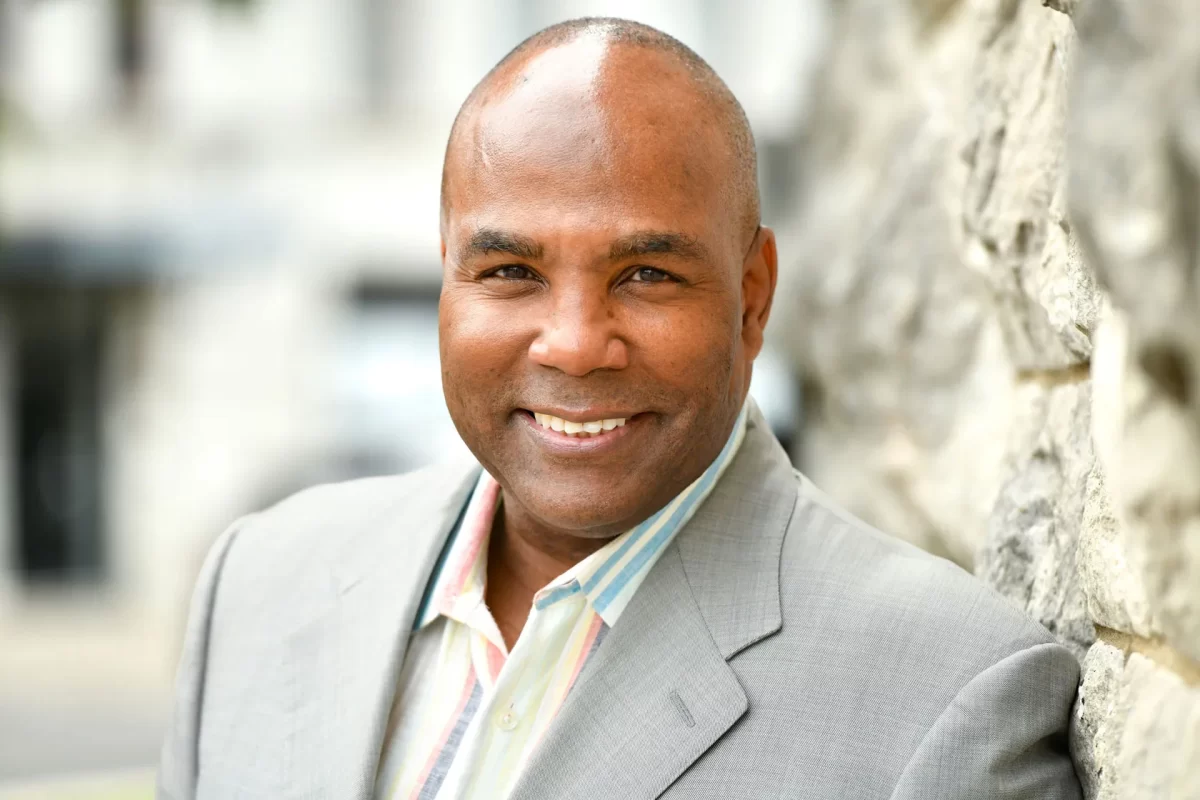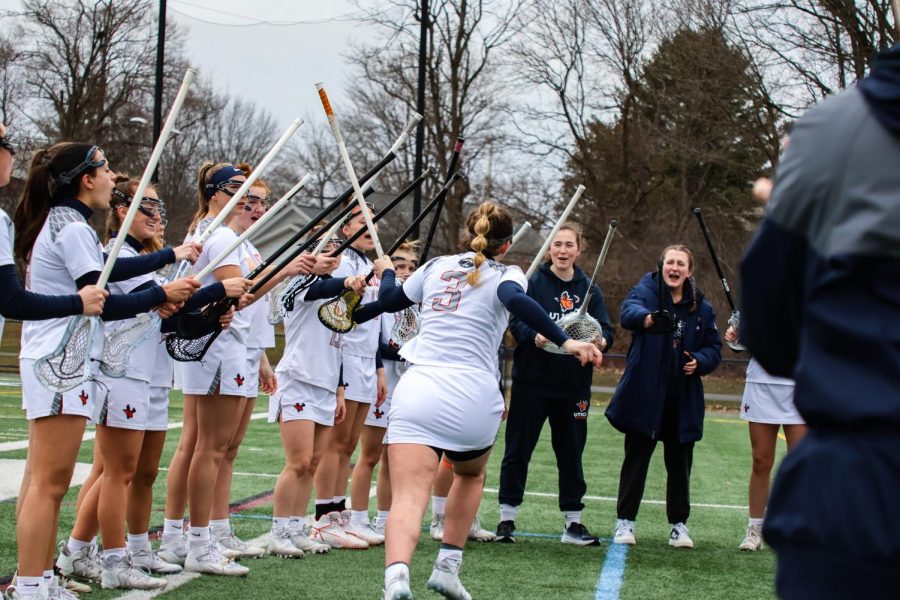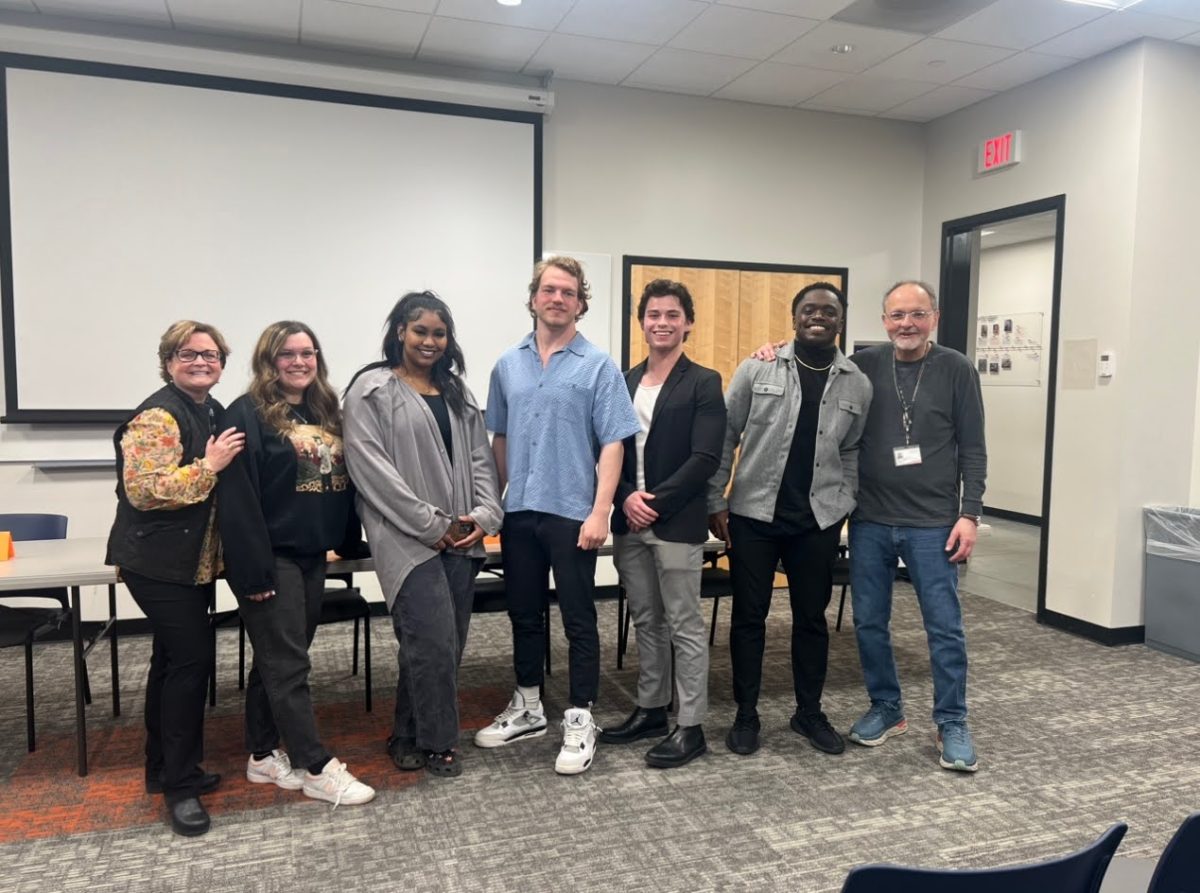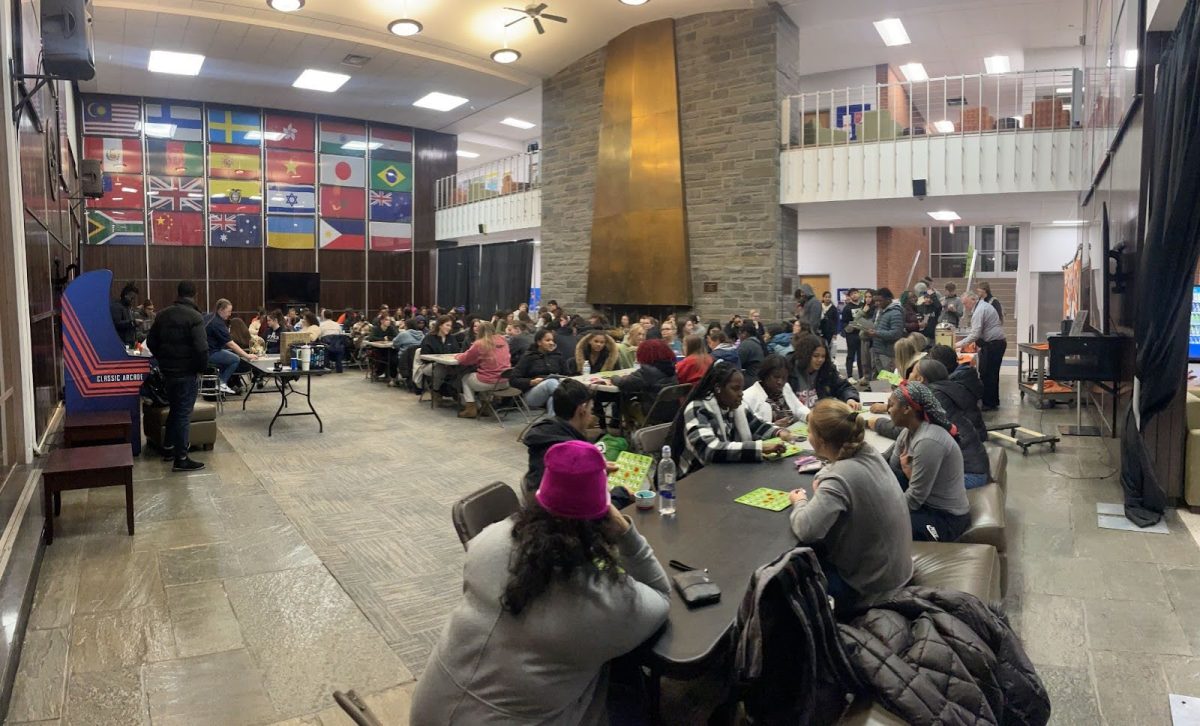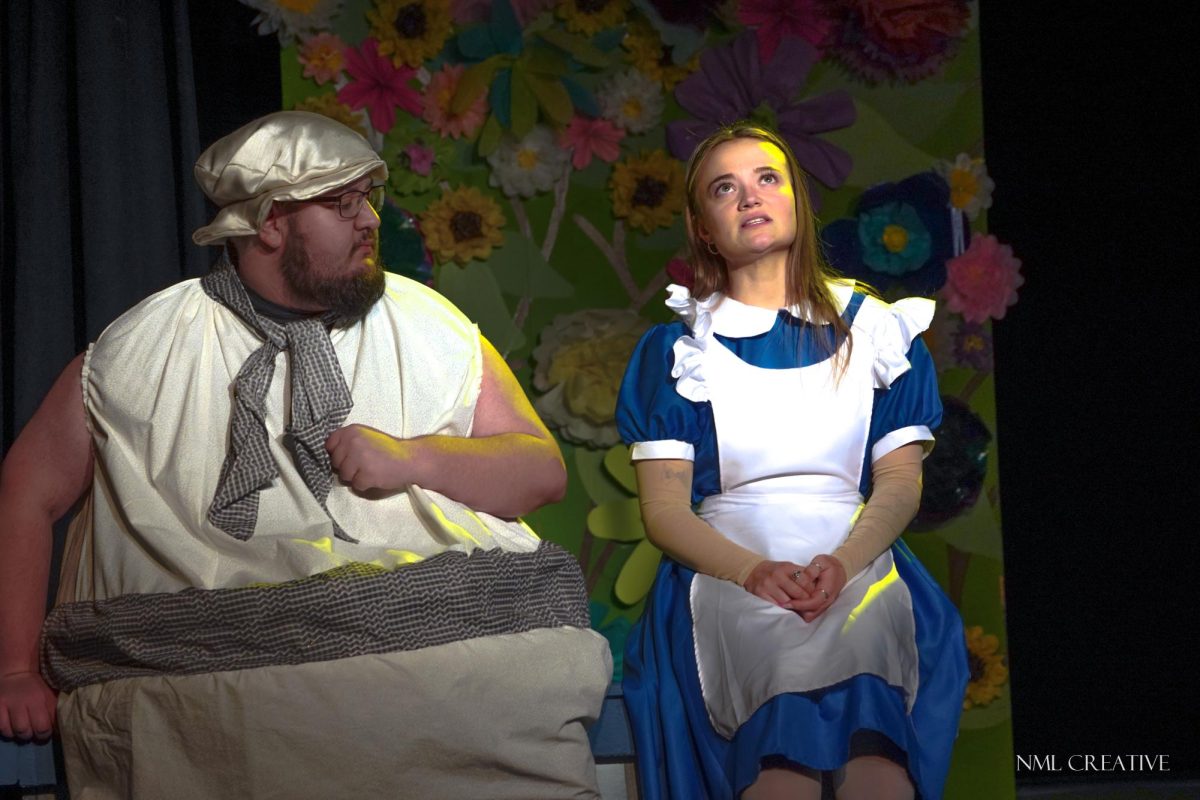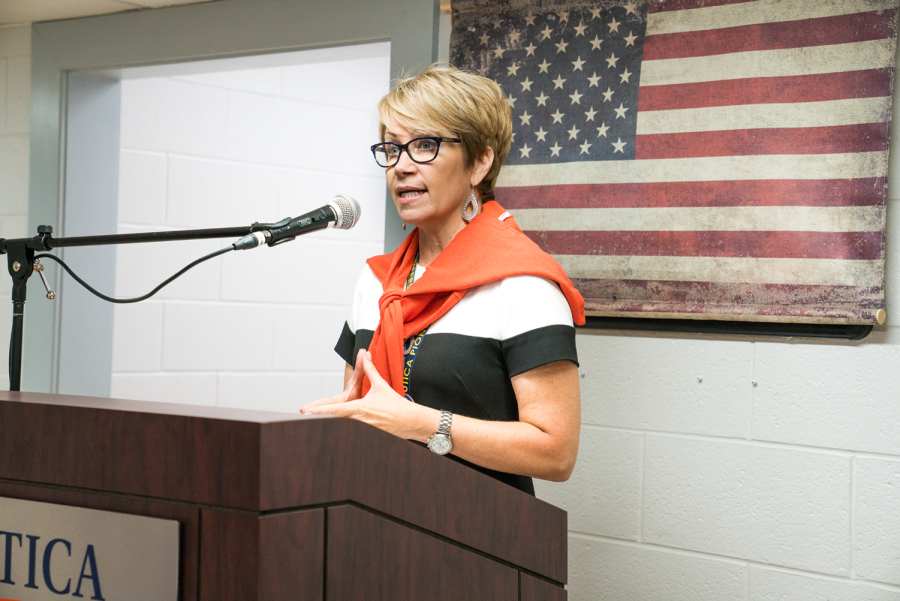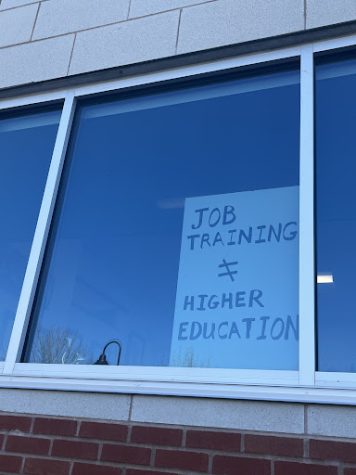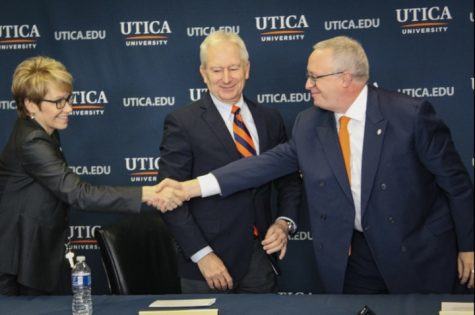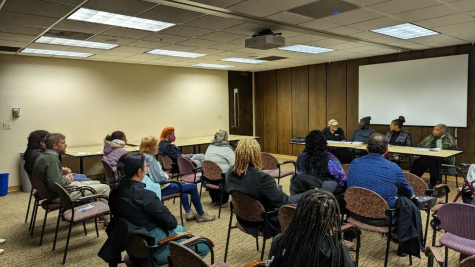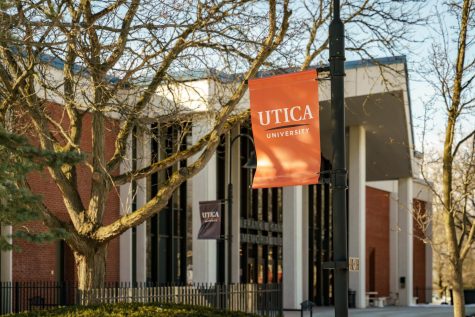Proposed program cuts draw sharp reaction from campus

Members of the AAUP Utica, dressed in their signature red, attending the faculty presentation in-person on Jan. 18.
January 26, 2023
When the clock struck 3:30 p.m. on Jan. 18, faculty members at Utica University were told the recommendations for programs to be sunset and modified in an Academic Portfolio Review presentation.
If approved, the majors slated for sunset will close enrollment and teach-out the current students in the major. Majors recommended for modification need to have a plan presented to their School Deans by Sept. 1, 2023 to be implemented by the Fall 2024 semester.
The proposal to eliminate 15 majors has brought strong backlash from many faculty members and concern from the student body.
Kirstin Walker, associate professor of therapeutic recreation, expressed disappointment at the lack of opportunity to ask questions, respond to the proposal or see any outline for the procedure going forward.
“My strongest emotion was anger at the way that this has happened and the process and the violation of our contract and our shared governance,” Walker said. “The lack of knowledge of what information was given to the president, all of that, it was palpable anger. And then the dead silence in the room when [the presenters] walked out spoke volumes louder than any sound.”
The recommendations
At the beginning of the 2022-23 academic year, Utica boasted 59 major offerings to incoming and current students. The recommendations, which emerged after a charge was submitted by the Board of Trustees in late August last year, were compiled out of nine years of data pertaining to enrollment, yield, retention and graduation of students.
During the faculty presentation, President Laura Casamento and Board of Trustees Chair Bob Bvrenik announced that 15 degrees that amount to 4.4% of the current student body are slated for sunsetting, which includes both bachelors of arts and sciences.
Decisions were reached after combing through enrollment data, marketplace trends and institutional financial data.
“As the higher education market shifts, we remain committed to thoughtfully and strategically at what shape our academic portfolio should take in the years ahead to best serve our students and our community,” according to the email announcement.
The proposal suggests the phasing out of B.A degrees in chemistry, geoscience, international studies, philosophy, physics, sociology and anthropology, Spanish and the business B.B.A. of public relations and marketing.
Further suggestions include B.S. degrees in criminal justice (online delivery), fraud and financial crime investigation (campus delivery), geoscience, healthcare management (both campus and online delivery), nutrition and therapeutic recreation.
Some of the recommendations include direction to provide support towards similar programs. Chemistry resources will be allocated to biochemistry, the university will continue to offer a B.S. in dietetics and nutrition as well as a B.S. in physics.
Eight majors and one program were put forward to stay in the portfolio with modifications, which include accounting, English, financial crime investigator certificate, health sciences and OT Weekend program, history, mathematics, physics B.S. and the political science B.A.
Recruitment and internal-transfer to sunsetted majors will cease following approval. Minors affiliated with sunsetted majors will remain offered and intact.
A student forum was held at 4:30 that Wednesday in Macfarlane Auditorium. Eight students and one faculty member attended the forum, which was led by Provost Todd Pfannestiel and Senior Vice President for Presidential Affairs Jeffery Gates.
During the student forum, Pfannestiel assured current students that they will not be impacted at all by the recommendations should they be approved mid-February.
“The 4.4% who are currently enrolled in the sunset recommendations are just as important to Jeff, I and the president as the 75% who are enrolled in the top 10 majors,” he said. “You will continue to receive all of the support. You will continue to receive the best education. You will earn an excellent degree from Utica University to help you move forward in your career path.”
What happens now?
On the Utica website, there is a page dedicated to the Academic Portfolio Review where faculty, staff and students can comment on the recommendations for a two week period.
Comments will be compiled for presentation, along with the official recommendations, to the Board of Trustees on Feb. 2. The trustees will have two weeks to deliberate before their meeting on Wednesday, Feb. 17, where a vote will be taken to accept or reject the recommendations.
The commenting forums are broken up by constituent categories and can only be accessed through an official Utica email. Cross-commenting, such as a student trying to view the faculty comment forum, will not be accessible.
Additionally, the [email protected] email, which is dedicated to collecting comments from those who may not feel comfortable posting to the forums, is limited only to utica.edu email addresses.

Faculty backlash
Adorning the bulletin boards and doors of some faculty offices are signs with the AAUP faculty union’s logo with bright, bold letters that state: “STOP THE CUTS” and “STRONGER TOGETHER.”
The Tangerine reached out to other faculty who voiced support for the recommendations. However, they declined to comment.
Leonore Fleming, professor of philosophy and president of the AAUP Utica chapter, posted a video responding to the recommendations to express her disapproval.
“It was devastating to watch an outgoing university president and an outgoing board of trustees chair make such colossal, short-sighted and poorly considered decisions without regard for the detrimental effects that will be felt across the university for years to come,” Fleming said.
On change.org, a website known for posting and signing petitions, the AAUP Utica account created a petition entitled, “Save Utica! Stop The Cuts!” As of Jan. 25, the petition has amassed over 500 signatures.
Michelle Boucher, a full-time professor of chemistry since 2005, said that the recommendation to sunset the chemistry major in favor of supplementing biochemistry is rooted in misunderstanding.
“I can only speak specifically to chemistry, that perhaps there has been a misunderstanding as to the separation of majors, and maybe a false dichotomy between the chemistry and biochemistry are in competition for resources or getting rid of one will help the other rather than what will happen in our case,” Boucher said. “It would be dramatically hurting the other.”
According to Boucher, Utica is accredited by the American Chemical Society, which promotes support for students and faculty in the chemistry department as well as certifies the undergraduate chemistry degree, as well as provides marketing to the university due to their place on the ACS website.
However, this accreditation is predicated on there being a chemistry major, which will impact biochemistry students as well.
“Our biochemistry majors can earn certified degrees, [they] get jobs in industry by virtue of graduating from an accredited department that speaks to the labs, to the instruments, to the experiential learning, to the industry ties we can offer,” Boucher said. “We will lose all of that when we don’t have a chemistry major period.”
The geoscience major, which is spearheaded by the geology department, has also been placed on the chopping block.
After working at Utica for 23 years as a professor of geology, Sharon Kanfoush said she was disappointed by the lack of dialogue and transparency prior to the recommendations.
“Departments produce and submit a very bulky 5-year program review every five years and I can tell you that we rarely get any feedback on those,” Kanfoush said. “So if there was concern or dissatisfaction with numbers, I think what is very upsetting is that it was never conveyed prior to this, when it could have made a difference when there could have been changes made prior to this.”
To some faculty, part of the upset has come from the absence of faculty input on recommendations, especially those from departments who may be sunsetted.
Laruah Klepinger, an assistant professor of anthropology and member of the 2020 summer general education design team, said that faculty members are aware of the issues faced as an institution and have shown their ability to collaboratively address these issues.
“[The general education redesign] was a really interesting, collaborative, sometimes fraught discussion among faculty about what changes need to take place, what needs to be cut and we achieved that job,” Klepinger said. “We showed that we could come together, make the cuts that were necessary and re-envision our general education model.”
Student thoughts
As of Jan. 25, there are over ten comments on the student commenting forum responding to the recommendations.
Colby Kusinitz, a cybersecurity major and Student Government Association president, attended the student forum. He was confused about some of the recommendations in the criminal justice field, but said all anyone can do now is sit and wait.
“I think the other thing that everyone needs to consider is to actually review the facts that are out there and published, and that this isn’t even in effect until the Board of Trustees votes up or votes down. Because the Board of Trustees can look at this and say ‘okay, this is great, we love it all’ and completely disregard everything, or they can say ‘fantastic’ and do whatever the recommendation says,” Kusinitz said.
Other reactions on campus have included concern from students currently in majors slated for sunsetting.
Terrell Davis, a therapeutic recreation major, which is one of the programs slated for sunsetting, also attended the presentation and did not like finding out his program would be eliminated. He was also disappointed that more students from the therapeutic recreation program were not present when the announcement was made.
“I feel like our influence would’ve been a little bit more if more people came, but there were only like five people here and one staff member,” he said. “It came down to showing up and showing out for your own program, and people did not commit to that. And my program they said they’re gonna sunset… it’s just kinda difficult.”
The news of the recommendations and a process which is being conducted for the first time on Utica’s campus has reached the ears of alumni, some of which have commented on the forums to express discontent.
Utica alumnus Emina Fetibegovic posted a comment on the student commenting forum detailing concern over the sunsetting of the philosophy major.
“The philosophy courses and the department’s professors have helped shape many of us into who we are today as people and professionals,” Fetibegovic wrote. “It is the hope of many alumni, along with current and prospective students, that Utica University reconsiders sunsetting the philosophy major.”

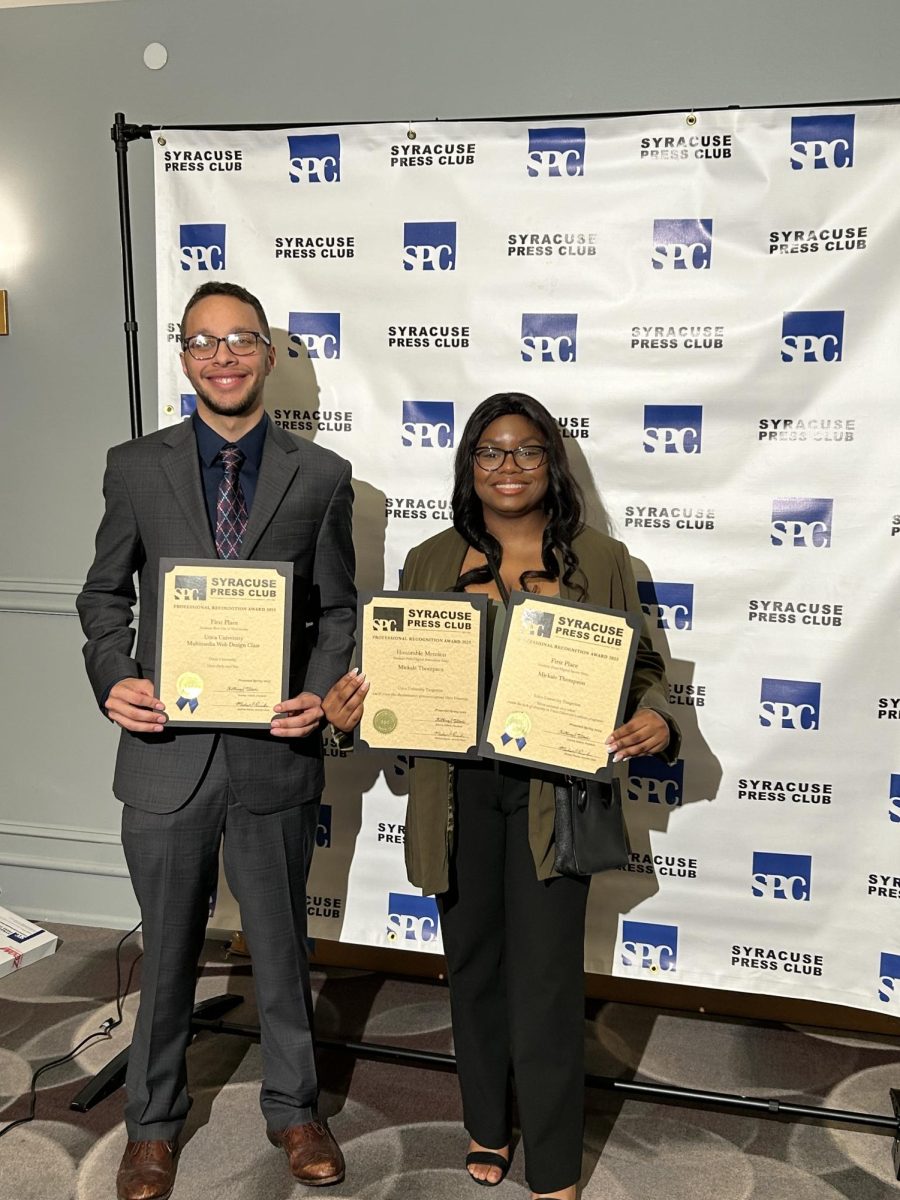
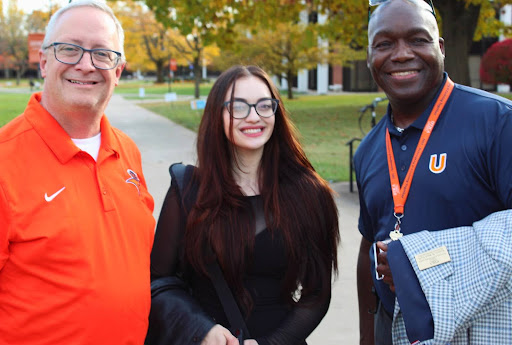

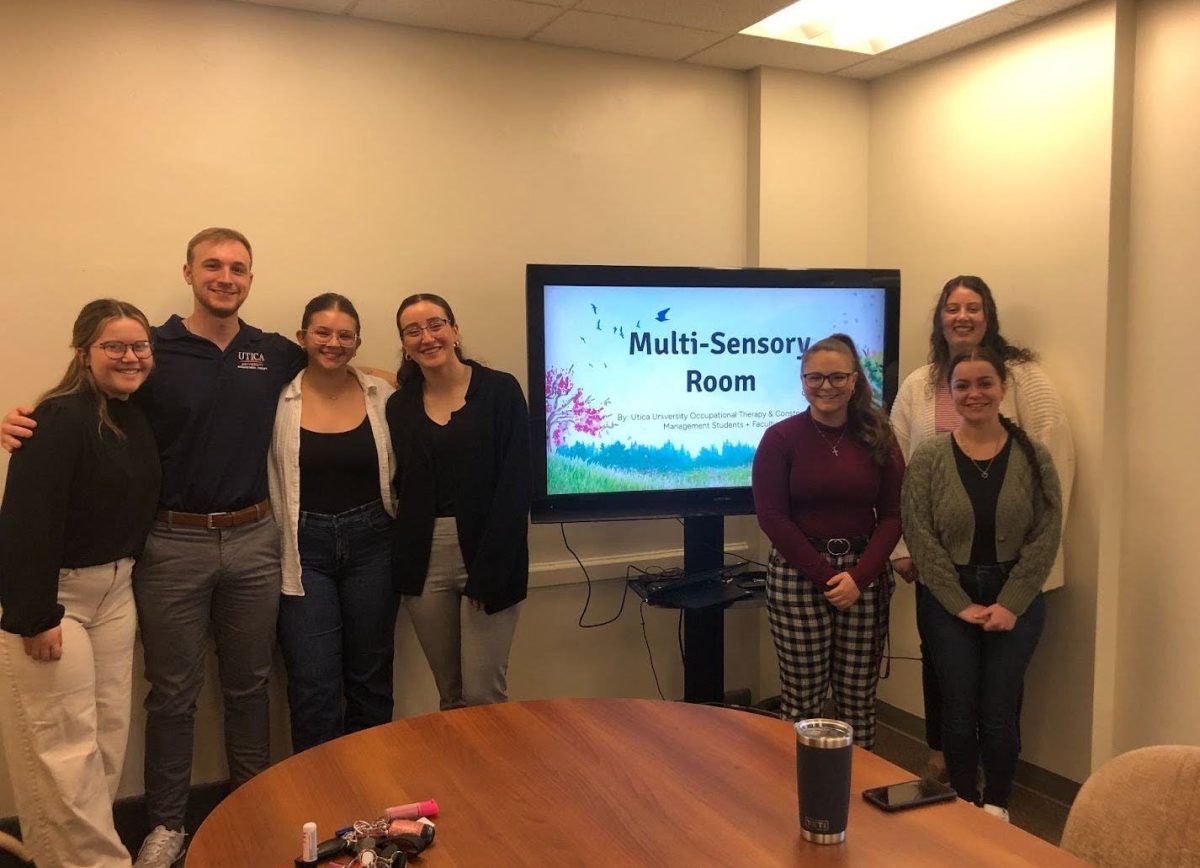













![President Todd Pfannestiel poses with Jeremy Thurston chairperson Board of Trustees [left] and former chairperson Robert Brvenik [right] after accepting the universitys institutional charter.](https://uticatangerine.com/wp-content/uploads/2023/10/unnamed.jpeg)




